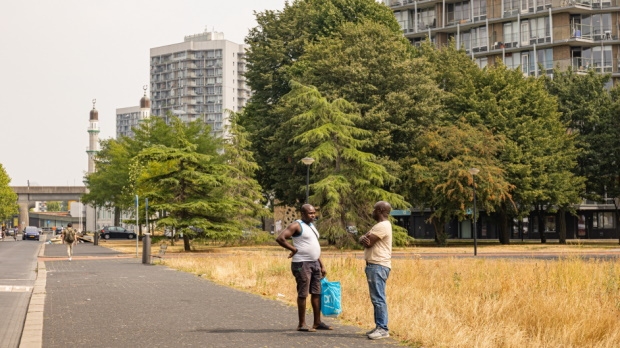JUST PREPARE - Putting REsident Practices And REsidential areas at the center of a JUST and effective energy transition in underprivileged neighbourhoods

In neighbourhoods with fewer opportunities, the energy transition (ET) often proves difficult to get off the ground. This is mainly due to two problems:
Technology does not always fit in with residents' daily lives.
For example: new installations or renovations do not fit in well with how people cook, wash or heat their homes.
Residents feel little involvement in the plans and decisions.
This creates mistrust and sometimes even resistance to change.
These problems can make ET less effective and less fair, for example through an unequal distribution of costs and benefits or insufficient attention to vulnerable groups.
That is why a bottom-up approach is needed, so that plans are in line with what residents need and how they live.
This means that local authorities, housing associations and other organisations need to better align their plans with what residents need and how they live. It also requires:
New ideas for renovations, technology and collaboration.
Understanding the diversity of residents and their energy consumption.
Practical methods for gathering and applying these insights.
Teaching and training materials for professionals in training (vocational education/higher professional education) and in the field.
This project develops this knowledge and these methods and tests them in four Living Labs, in which local authorities, residents and other partners work together. What works well there is translated into Learning Labs for use in other places, for example by professionals, companies and students involved in the energy transition.
In Underprivileged Neighbourhoods (UNs), attempts to realize the energy transition (ET) face two mismatches: 1) between retrofit technologies and residents’ energy practices, and 2) between residents and those actors planning and implementing solutions. These may hamper the ET in terms of both effectiveness (through producing resistance, rebound and prebound rebound and prebound effects) and justice (i.e. distribution of benefits and burdens; degree of access to ET decision-making; and recognition of how vulnerable groups are affected by the ET). Knowledge causes underlying these mismatches are lack of in-depth knowledge of energy-consuming practices such as cooking, laundering, and keeping warm; and lack of effective and just methods to involve UN residents in the ET.
An effective and just ET thus requires a bottom-up perspective to rethink and further develop thematic agendas for municipalities, housing corporations and other institutional actors; repertoires of interface technologies, renovation strategies and governance arrangements; insight into the diversity of current and future resident needs and practices each may serve; methods to develop or check such insights in cases beyond our project); educational material for (post-)initial training of professionals to support the Et in UNs. This project develops methodical and substantive knowledge needed to realize these issues. Initial knowledge outputs are tested and improved based on lessons learned in four Living Labsin which four municipalities, residents and other stakeholders participate. These outputs are translated into outcomes for use in other places in Learning Labsin which both Living Labs stakeholders, businesses and actors specialized in knowledge utilization and transfer participate.